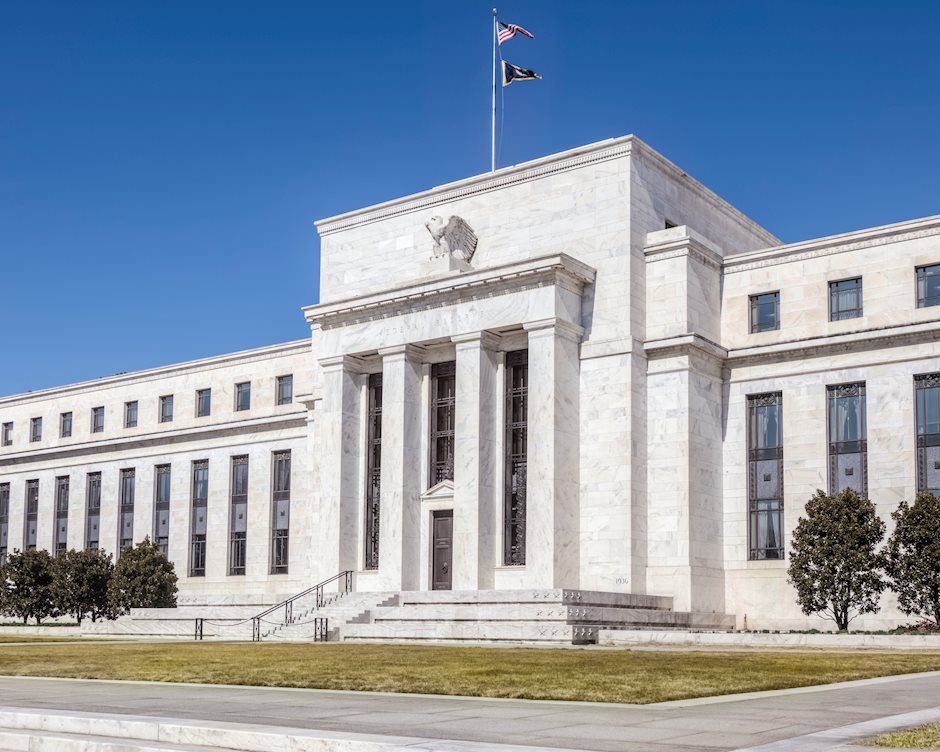Fed reserve floats more “digital dollar” plans

This week, the Federal Reserve launched another barb in the brewing currency war. Fed Chairman Jerome Powell said a central bank digital currency could render cryptocurrencies such as Bitcoin useless.
Those comments come on the heels of an announcement last month by the U.S. Treasury that it could soon force businesses receiving more than $10,000 in crypto payments from a customer to file an IRS report on the transaction.
Meanwhile, as crypto markets continue to trade down from their highs of this spring, investors may increasingly look to tangible, non-digitized means of holding wealth. Hard money is the ultimate alternative to both paper and digital currencies. And concerns over inflation and political risk could eventually bode well for precious metals markets.
Precious metals prices may have a lot of catching up to do given the recent inflation data. The government’s own Consumer Price Index is rising at a 7.3% annual rate. And producer prices are surging at a 10% clip so far this year.
Fed chairman Jerome Powell addressed inflation concerns during testimony before the United States Senate on Thursday. He admitted that inflation has been running “well above target" but insisted no immediate action is necessary to tame it. Powell offered only his personal opinion that high inflation is transitory along with a vague timeline for eventual tapering of asset purchases.
He also told lawmakers that he wants their input on potentially developing a central bank digital currency. Such an instrument would enable officials to control cashflows and track individual economic transactions like never before. If “FedCoin” became mandatory for things like paying taxes, then using it would be inescapable.
Powell also thinks a digital dollar would completely supplant free-market stablecoins and cryptocurrencies. That’s something many politicians are eager to see happen.
The run-up in crypto markets earlier this year sent off alarms within legislatures and central banks around the world. It gave central planners a convenient pretext for accelerating their move toward a Great Reset of the monetary system.
But the Fed remains cagey about the specifics of a digital dollar and how far along into the research and development process it has gotten so far.
The notoriously secretive body resists public accountability in the name of “independence.” The Fed even has its own team of lobbyists to thwart attempts by Congress to mandate an audit of its books.
Constitutional attorney Robert Barnes is suing to obtain records Fed officials are hiding from the public, including documentation of its plans for a digital dollar. Barnes recently spoke with the WallStreetSilver community and outlined some of the disturbing implications of the Fed’s agenda.
Robert Barnes: Well, what's our ultimate objective? In the court of public opinion, it's to awaken a lot more people that we have this secretive organization of a private clique of bankers, that are determining and dictating and running economic policy for everybody in the world. And that their agenda and their objectives get a lot worse and a lot darker than even where they've been.
I think there's internal documentation about their intention to do not only a digital currency, but for it to be a chip. And what else will be on that chip is medical records information, vaccine delivery information, the ability to remotely access it. They've been designing chips that have that capacity.
It sounds like something out of a dystopian science fiction novel. Just a couple years ago, it may have been easy to dismiss warnings of central bank microchips that store financial and medical data on everybody as baseless fear mongering by conspiracy theorists.
But since the COVID outbreak, authorities have become emboldened to pursue measures that track and control public behavior like never before. As a result, personal freedoms are under threat like never before.
Unfortunately, there is no silver bullet for defeating tyranny. But silver and gold bullion do provide some measure of financial freedom. Physical metal exists completely outside the controlled banking system. Hard money offers true independence from the U.S. dollar and other fiat currency regimes.
Even amid a Brave New World of central bank digital currency, tangible wealth cannot be extinguished by decree. Precious metals will continue to be sought after as they provide protection from inflation and digital privacy incursions.
A bullion coin can always be held outside of the banking system, off the blockchain, and beyond the reach of electronic tracking systems.
Even if you value the convenience of e-commerce and electronic transactions, setting aside a portion of your wealth to be physically impervious to digital threats provides peace of mind. And that, at the end of the day, is priceless.
To receive free commentary and analysis on the gold and silver markets, click here to be added to the Money Metals news service.
Author

Mike Gleason
Money Metals Exchange
Mike Gleason is a Director with Money Metals Exchange, a national precious metals dealer with over 500,000 customers.

















